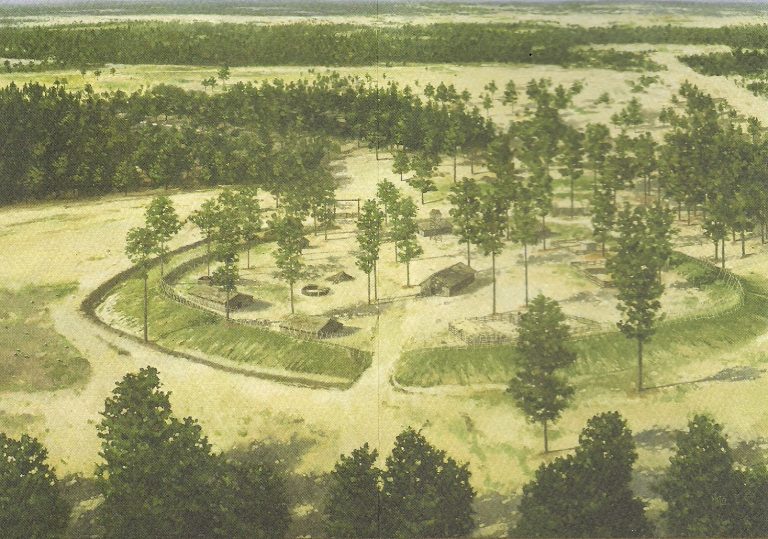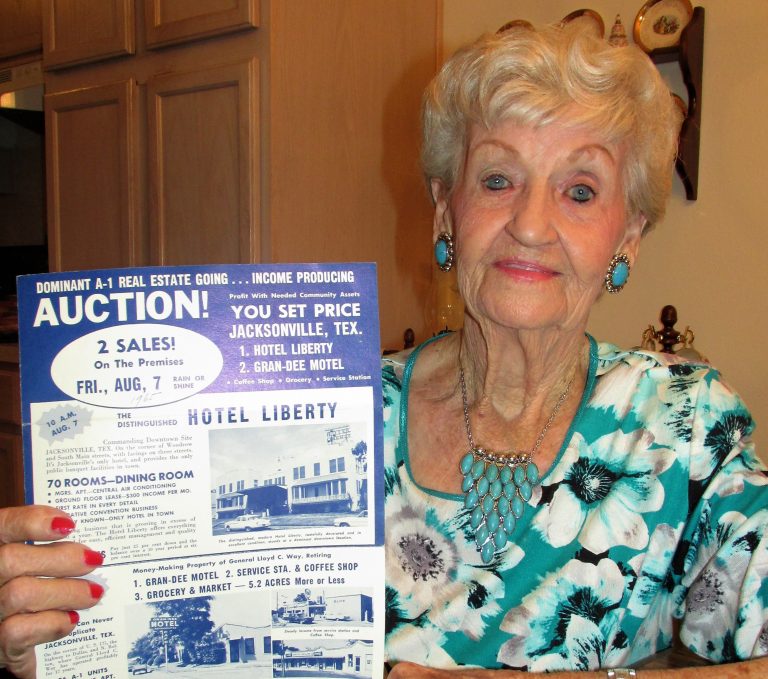Van Craddock's Gregg County Tales
A holy war to win East Texas souls
A number of hearty, heavenly men of the cloth risked their lives more than a century ago in a wicked, fire-and-brimstone land called East Texas.
Take William “Choctaw Bill” Robinson, a Baptist missionary who arrived in Rusk County in 1848. Robinson served the next four decades as founder or pastor of some twenty churches from the Piney Woods to North Central Texas.
Robinson rode his mule hundreds of miles “preaching to settlements scattered from Rusk County to the Concho (River) and beyond,” a Coleman County newspaper wrote about Roberts in 1940.
“Most mules know more than men,” said Robinson, who fathered fourteen children by two wives and kept a pet bear on a chain at his crowded cabin.
It wasn’t uncommon for Robinson, a one-time slaveholder, to find a shady spot and preach for three or four hours. He usually set his musket against a tree within quick reach, just in case trouble broke out.
One day he was preaching to an audience that included several Choctaws. The Indians eventually walked out during the lengthy sermon, saying they were bored. Bemused friends bestowed upon Robinson the nickname of “Choctaw Bill.”
Another preacher who kept his gun handy was A. E. Clemmons, who in 1855 was pastor at Marshall’s First Baptist Church. One Sunday Clemmons railed against liquor and gambling.
The sermon resulted, the Marshall newspaper said, in the reverend being “waylaid and attacked” by a local thug who didn’t appreciate the message. Despite a dislocated arm and other injuries, Clemmons took his loaded shotgun to church the following Sunday and preached another sermon about the evils of gambling and strong drink.
For several Sundays a friend of Clemmons sat on the church’s front steps with the shotgun, discouraging potential troublemakers. Clemmons served the Marshall church until 1861, when he left to fight in the Civil War.
Clemmons survived the conflict and later became pastor of Longview’s First Baptist Church. He and his sons eventually organized Longview’s first bank.
The Catholic Church was the established religion in Mexico-owned Texas until 1834. Numerous denominations vied for members, especially after Texas won its independence in 1836.
One man wanting more preachers in Texas was William Barrett Travis. Only months from becoming commander at the Alamo, Travis wrote the New York Christian Advocate and Journal:
“I regret that the Methodist church, with its excellent itinerant system, has hitherto sent the pioneers of the Gospel into almost every destitute portion of the globe, (but) has neglected so long this interesting country. We are very destitute of religious instruction in this extensive fine country.”
But Stephen F. Austin, who was colonizing Spanish Texas with American settlers, didn’t want more American preachers journeying to his colony.
“Why, one Methodist preacher would do more mischief in my colony than a dozen horse thieves,” he said. Austin didn’t mind if the preachers shared the “Good News” in private homes. However, the Methodists tended toward “public preaching” which angered Mexican officials.
In addition to tough locals, early preachers had to deal with the Native Americans. Some Indians had become increasingly hostile toward Anglo missionaries. Lonely circuit-riding preachers made good targets for Indian arrows.
With statehood achieved in 1845, the Methodist church sent a large number of missionaries to Texas. Said one Catholic priest in 1848, “Houston is infested with Methodists and ants.”
Another early missionary was Jesse Hord, who crossed the Sabine River into East Texas in November 1838. “My feelings were peculiar, my heart emotions indescribable,” Hord wrote in his diary. “What was ahead? Strangers, a strange country, and rough, reckless and sparsely settled.”
Another preacher decreed that many inhabitants of the Piney Woods “bear the worst moral character imaginable, many of them being renegades from justice.”
But ever so slowly, courageous preachers transformed East Texas into a land dotted with church buildings and growing congregations. The frontier had found religion.
Van Craddock, a 1970 SFA graduate, has written a column for the Longview News-Journal since 1978. He has published two collections of his News-Journal columns, most recently a book titled “East Texas Tales: A Celebration of Pineywoods People, Places, Facts and Fables.” The U.S. Army Vietnam veteran serves on the Gregg County Historical Commission. Van and wife Bettye (a former SFA Pine Log editor) live in Longview.



